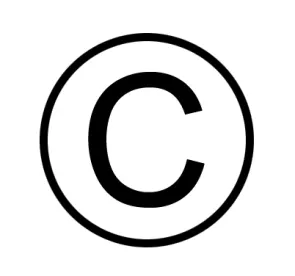The US Court of Appeals for the Sixth Circuit affirmed a district court decision implementing a preliminary injunction and striking a new defense first asserted in an amended complaint as untimely and frivolous. ACT, Inc. v. Worldwide Interactive Network, Inc., Case Nos. 21-5889; -5907; -6155 (6th Cir. Aug. 23, 2022) (White, Bush, Reader, JJ.)
ACT publishes WorkKeys, a product designed to assess job performance skills. Three of the product’s assessments (Applied Mathematics, Locating Information and Reading for Information) were at issue in this case, and all included various “Skill Definitions” that describe the skills tested by the assessments. ACT and Worldwide Interactive Network (WIN) worked together from 1997 to 2011. During that time, WIN had the authority to develop and sell WorkKeys. After the business relationship ended, WIN began developing and promoting its own assessment tests.
In 2018, competing bids between ACT and WIN to provide educational material to the state of South Carolina showed that WIN’s “Learning Objectives” that were virtually indistinguishable from ACT’s Skill Definitions. ACT brought suit against WIN asserting claims, including copyright infringement, based on WIN’s alleged copying of ACT’s Learning Objectives. The district court granted partial summary judgment to ACT in March 2020 with the additional claims to go to trial, but trial was seriously delayed by COVID-19. During this time, WIN revised its Learning Objectives and claimed they no longer infringed. The district court ordered ACT to amend its complaint to include new allegations regarding the revisions. ACT complied. WIN then asserted a new derivative sovereign immunity defense in its amended answer, to which ACT objected. The district court agreed and struck the defense as untimely and frivolous. The district court entered a preliminary injunction in August 2021 barring WIN from distributing the original and revised Learning Objectives and assessments. WIN appealed, contesting the preliminary injunction and the striking of the defense.
After explaining its jurisdiction, the Sixth Circuit examined whether the district court had abused its discretion in imposing an overly broad preliminary injunction. Both the district court and the Sixth Circuit agreed that ACT was likely to succeed on its copyright claim. WIN’s argument on this issue was primarily based on its belief that the Skill Definitions were not creative or original to ACT and therefore were not copyrightable. The Court stated that while ACT’s selection of the skills was likely not copyrightable, the descriptions and arrangement of the skills were likely protectable. The Sixth Circuit also determined that the district court did not erroneously presume irreparable harm because it did not rely on a presumption but independently found irreparable harm. The Sixth Circuit also stated that the district court properly weighed the parties’ competing interests in the preliminary injunction and found minimal legitimate interest for WIN based on WIN’s business model essentially being infringement of ACT’s intellectual property.
The Sixth Circuit then explained why the district court properly struck the derivative sovereign immunity defense. While states generally enjoy sovereign immunity from suit, private contractors can sometimes obtain certain immunity in connection with work done pursuant to contracts with state governments. WIN’s theory was that it could assert this sovereign immunity because it was contracting with various states for these materials. While the district court struck the defense as untimely and frivolous, the Sixth Circuit determined that WIN’s significant delay in asserting the defense resulted in a forfeiture and therefore did not address whether the defense was also frivolous. The Court looked at when the defense could have first been asserted and whether WIN presented a reasonable explanation for its delay in raising the defense to determine if it was so untimely raised as to be forfeited.
The parties did not dispute that the defense was unavailable when ACT filed its first complaint in May 2018, when WIN filed its answer in July 2018 and when WIN filed an amended answer in July 2019, because the law at the time did not provide states with the immunity WIN sought to assert. Thirteen days after the district court’s grant of partial summary judgment, the Supreme Court clarified in Allen v. Cooper (2020) that states could assert sovereign immunity defenses against copyright infringement claims. WIN proceeded to move the district court to reconsider its partial summary judgment in April 2020 but did not do so based on derivative sovereign immunity. WIN did not raise its derivative sovereign immunity defense until answering the amended complaint about a year and a half after it became available. The Court determined that WIN did not have a “reasonable explanation” for its delay because (contrary to WIN’s assertion) the defense was available before the amended complaint. The Court explained that WIN should have raised the defense in a motion to reconsider the partial summary judgment order because those orders can be revised until final judgment and because circuit precedent allows for new arguments based on changes in controlling authority in motions to reconsider. WIN did not sufficiently explain why it did not raise the defense at that time. The Court also explained that the filing of the amended complaint did not “wipe the slate clean” and that the amended complaint did not permit the allegation of novel defenses because it was just an extension of the existing allegations that did not “transform the litigation.”




 />i
/>i

